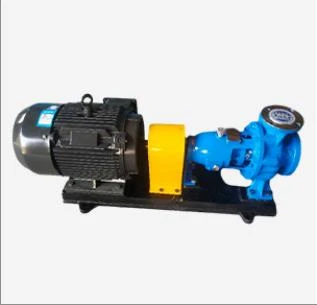Georgian
- Afrikaans
- Albanian
- Amharic
- Arabic
- Armenian
- Azerbaijani
- Basque
- Belarusian
- Bengali
- Bosnian
- Bulgarian
- Catalan
- Cebuano
- Corsican
- Croatian
- Czech
- Danish
- Dutch
- English
- Esperanto
- Estonian
- Finnish
- French
- Frisian
- Galician
- Georgian
- German
- Greek
- Gujarati
- Haitian Creole
- hausa
- hawaiian
- Hebrew
- Hindi
- Miao
- Hungarian
- Icelandic
- igbo
- Indonesian
- irish
- Italian
- Japanese
- Javanese
- Kannada
- kazakh
- Khmer
- Rwandese
- Korean
- Kurdish
- Kyrgyz
- Lao
- Latin
- Latvian
- Lithuanian
- Luxembourgish
- Macedonian
- Malgashi
- Malay
- Malayalam
- Maltese
- Maori
- Marathi
- Mongolian
- Myanmar
- Nepali
- Norwegian
- Norwegian
- Occitan
- Pashto
- Persian
- Polish
- Portuguese
- Punjabi
- Romanian
- Russian
- Samoan
- Scottish Gaelic
- Serbian
- Sesotho
- Shona
- Sindhi
- Sinhala
- Slovak
- Slovenian
- Somali
- Spanish
- Sundanese
- Swahili
- Swedish
- Tagalog
- Tajik
- Tamil
- Tatar
- Telugu
- Thai
- Turkish
- Turkmen
- Ukrainian
- Urdu
- Uighur
- Uzbek
- Vietnamese
- Welsh
- Bantu
- Yiddish
- Yoruba
- Zulu
Telephone: +86 13120555503
Email: frank@cypump.com
დეკ . 20, 2024 16:50 Back to list
wastewater treatment pumps
Wastewater Treatment Pumps Essential Components in Sustainable Water Management
Wastewater treatment remains one of the most critical aspects of environmental management, ensuring that water is treated effectively before it is released back into the ecosystem or reused. At the heart of this process are wastewater treatment pumps, which play a crucial role in moving water through various stages of treatment. This article explores the importance, types, and innovations in wastewater treatment pumps, highlighting their significance in sustainable water management.
Importance of Wastewater Treatment Pumps
The primary function of wastewater treatment pumps is to transport wastewater and sludge during the treatment process. These pumps facilitate the movement of sewage from homes and industries to treatment facilities, ensure the circulation of water through the treatment processes, and aid in the disposal of treated effluent. By effectively managing these processes, wastewater treatment pumps help protect public health and the environment.
Reliable pump systems also contribute to energy efficiency and operational effectiveness. Properly designed and maintained pumps can significantly reduce energy consumption, operating costs, and greenhouse gas emissions, making them vital components in sustainable wastewater treatment facilities.
Types of Wastewater Treatment Pumps
Several types of pumps are utilized in wastewater treatment facilities, each designed for specific applications
1. Centrifugal Pumps These pumps are the most common in wastewater treatment. They use rotational kinetic energy to move water, providing a steady flow suitable for moving large volumes of liquid quickly. Centrifugal pumps are known for their efficiency and can handle a range of wastewater compositions.
2. Positive Displacement Pumps These pumps move water by trapping a fixed amount and forcing it into the discharge pipe. They are ideal for thick sludge and high-viscosity fluids, making them essential for managing residual materials that require dewatering.
3. Submersible Pumps Designed to be submerged in the wastewater, these pumps are often used for lifting liquids from deep wells or pits. Their robust design protects against harsh conditions, and they are typically energy-efficient and space-saving options.
wastewater treatment pumps

4. Diaphragm Pumps These pumps are well-suited for handling corrosive or abrasive fluids. They are characterized by their ability to operate with high solids content, commonly found in wastewater applications.
5. Dumpster Pumps These specialized pumps are designed for portable applications, often used in emergency situations or temporary setups. Their ease of use and mobility make them ideal for a range of scenarios.
Innovations in Wastewater Treatment Pumps
The wastewater treatment industry is experiencing significant innovations driven by technological advancements and the need for more sustainable practices. Key trends include
- Smart Technologies The integration of IoT (Internet of Things) technology into pump systems allows operators to monitor performance in real-time, predict maintenance needs, and optimize operations. Data analytics help in understanding pump behavior and improving overall efficiency.
- Energy-Efficient Designs Advances in pump design ensure that they operate at optimal efficiency levels, reducing energy consumption and operational costs. High-efficiency motors and variable frequency drives (VFDs) are widely adopted, allowing pumps to adjust their speed based on demand.
- Robust Materials New materials and coatings enhance the durability and corrosion resistance of pumps, allowing them to handle varying compositions of wastewater while reducing maintenance needs.
- Sustainable Practices The push for sustainable treatment solutions has led to the development of pumps that support eco-friendly practices, such as energy recovery and the treatment of industrial wastewater to meet reuse standards.
Conclusion
In conclusion, wastewater treatment pumps are indispensable components of modern wastewater management systems. Their ability to move water efficiently through treatment processes is vital for protecting public health and preserving the environment. As the industry evolves, the adoption of innovative technologies and sustainable practices will drive the development of more efficient and reliable pump systems. Investing in high-quality wastewater treatment pumps not only enhances operational efficiency but also aligns with broader environmental goals, contributing to a more sustainable future.
-
Reliable Non-Clog Sewage Pumps with GPT-4-Turbo Tech
NewsAug.04,2025
-
High-Performance Air Pumps for Sand & Gravel | Efficient Transport
NewsAug.03,2025
-
ISG Series Vertical Pipeline Pump - Chi Yuan Pumps Co., LTD.|Energy Efficiency, Corrosion Resistance
NewsAug.03,2025
-
ISG Series Pipeline Pump - Chi Yuan Pumps | Energy Efficiency&Compact Design
NewsAug.03,2025
-
ISG Series Vertical Pipeline Pump - Chi Yuan Pumps Co., LTD.|High Efficiency, Low Noise, Durable
NewsAug.02,2025
-
ISG Series Vertical Pipeline Pump - Chi Yuan Pumps | High Efficiency, Low Noise
NewsAug.02,2025










